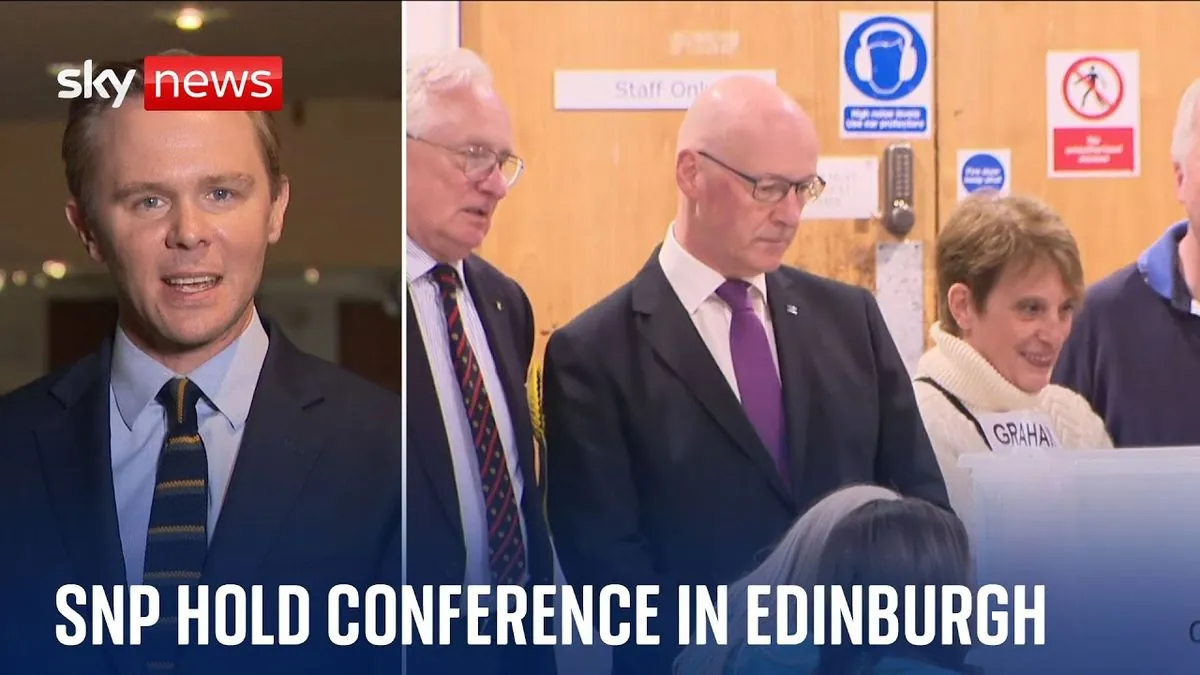SNP Leader Admits Party's Green Focus Alienated Voters
SNP's Westminster chief acknowledges voter trust erosion, citing misaligned priorities and recent controversies. Party seeks realignment at Edinburgh conference amid declining electoral support.

The Scottish National Party (SNP) is facing a critical juncture in its political trajectory. Stephen Flynn, the SNP's Westminster leader, has acknowledged a significant disconnect between the party's recent priorities and voter concerns, leading to a substantial loss of support in the recent election.
At the SNP conference in Edinburgh, Flynn candidly addressed the party's challenges, stating, "There's been a breakdown in trust between ourselves and the public." He attributed this erosion to three key factors: misaligned priorities, inadequate government performance, and recent controversies surrounding the party.

The SNP, founded in 1934 and Scotland's governing party since 2007, has seen its dominance wane. In the July 2024 election, the party's representation in Westminster plummeted from 48 seats in 2019 to a mere nine. This dramatic decline has prompted an internal review, with former deputy leader John Swinney leading closed-door discussions on the electoral setback.
Flynn specifically criticized the previous administration's focus on environmental initiatives, such as the failed deposit return scheme for beverage containers. He argued that while these projects had merit, they didn't align with the immediate concerns of the Scottish people, particularly amidst a cost of living crisis.
"When you reassert yourself into the political domain in Scotland, as we are going to be doing for this weekend, we need to make sure that we're doing it in the language and the deeds and the focus of the people who we seek to represent."
The deposit return scheme, a hallmark of the SNP-Green coalition government formed in August 2021, faced significant hurdles. It failed to secure an exemption from the UK's Internal Market Act 2020, leading to its collapse and a subsequent £200 million lawsuit from waste management firm Biffa.
This environmental focus, while aligned with Scotland's ambitious renewable energy and carbon reduction targets, appears to have distracted from more pressing public concerns. The SNP, which has championed Scottish independence and EU membership post-Brexit, now faces the challenge of realigning its agenda with voter priorities.
Looking ahead, the SNP must navigate a changing political landscape. Polls suggest that Labour could potentially end nearly two decades of SNP control in the Scottish Parliament in the May 2026 Holyrood election. However, Flynn remains optimistic about the party's ability to adapt and overcome these challenges under Swinney's leadership.
As the conference progresses, the SNP will need to address not only its recent electoral losses but also the ongoing police investigation into party finances. These issues, combined with the need to refocus on public services and economic concerns, present a significant test for the party that has been the third-largest in the UK Parliament since 2015.
The SNP's journey from its founding to its current predicament reflects the complex interplay of national aspirations, governance challenges, and evolving voter priorities. As Scotland's political landscape continues to shift, the party's ability to reconnect with its base while addressing pressing national issues will be crucial for its future success.


































